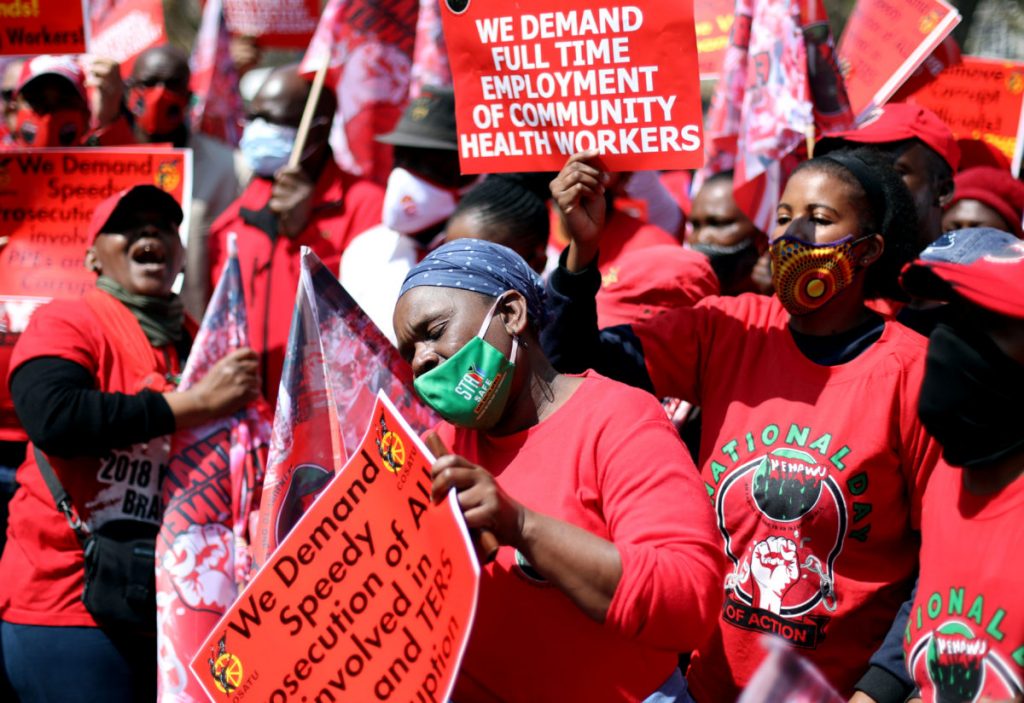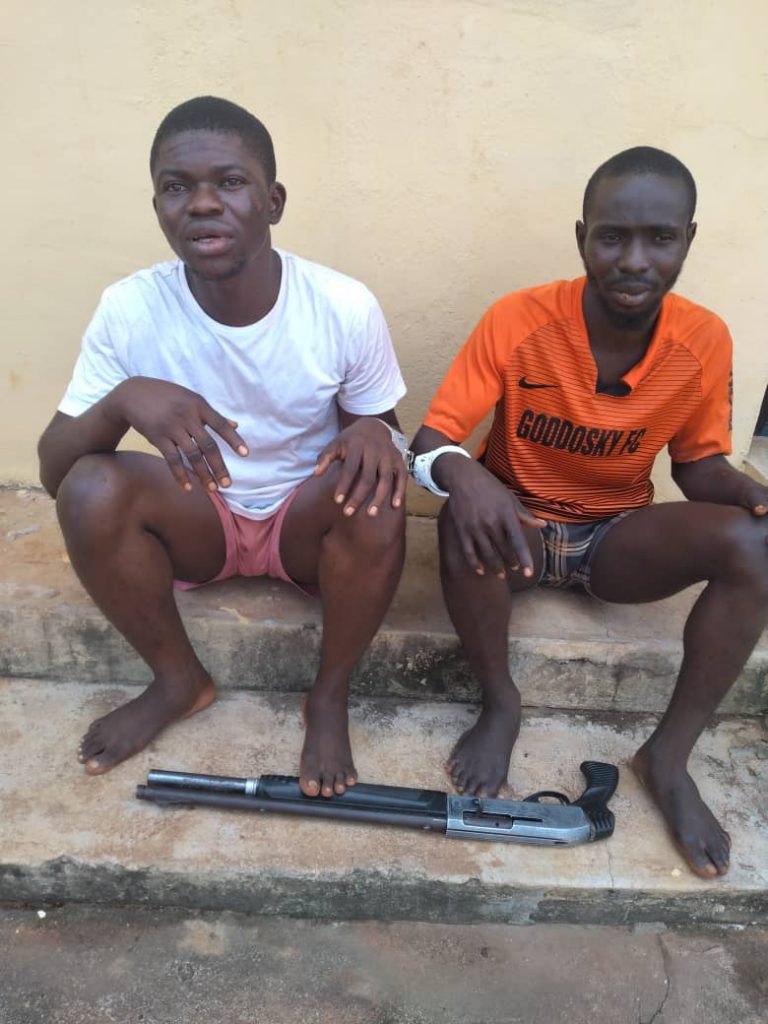
South African healthcare workers have protested against poor working conditions and urged the government to end corruption in the procurement of coronavirus personal protective equipment.

The protesters gathered in Pretoria and Cape Town on Thursday, charging that the lives of healthcare workers are endangered as some health facilities have inadequate supplies of protective equipment like surgical masks.

The union leading the demonstrations – the National Education, Health and Allied Workers’ Union – has threatened that its 200,000 public workers will go on strike on September 10 if their issues are not addressed.
They have also demanded danger pay for workers who are on the front line in the battle against COVID-19.
A widespread strike by healthcare workers would cause serious problems for South Africa’s hospitals, which have been stretched to the limit by the coronavirus.
Although the number of new confirmed cases of COVID-19 has decreased, South Africa is still reporting more than 2,000 new cases per day and the country has been warned of a possible second wave of infections.
South Africa has recorded 630,595 positive cases of COVID-19, the highest in Africa, and the sixth-highest in the world.
According to the official figures, the pandemic has so far killed more than 14,300 people in the country.
More than 27,300 health workers have tested positive and 230 have died from the disease.
The demonstrators in Pretoria marched in front of the offices of President Cyril Ramaphosa at the Union Buildings.
They held up placards that read, “Thank You Frontline Workers” and “Remove Corrupt Officials”.
Meanwhile,
In a related development, South Africa has been rocked by allegations of corruption related to the procurement of personal protective equipment.
President Ramaphosa’s spokeswoman, Khusela Diko, stepped down after being linked to irregular purchases. Her husband’s company allegedly charged more than five times the regulated amount for surgical masks and sanitisers.
Gauteng provincial health minister, Bandile Masuku, was also forced to step down due to allegations he was linked to the irregular procurement of health supplies.
The country’s Special Investigating Unit said it is currently probing More than 20 cases of corruption related to the contracts to provide health supplies to the government.

